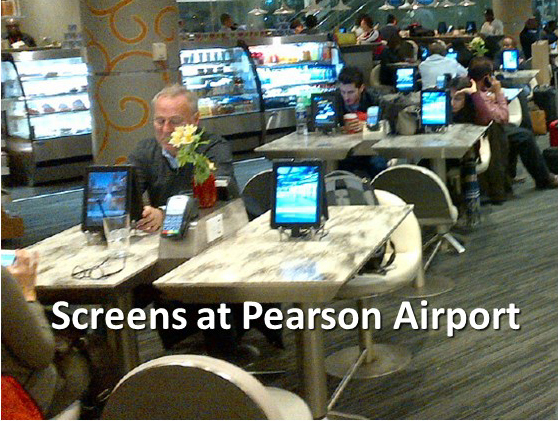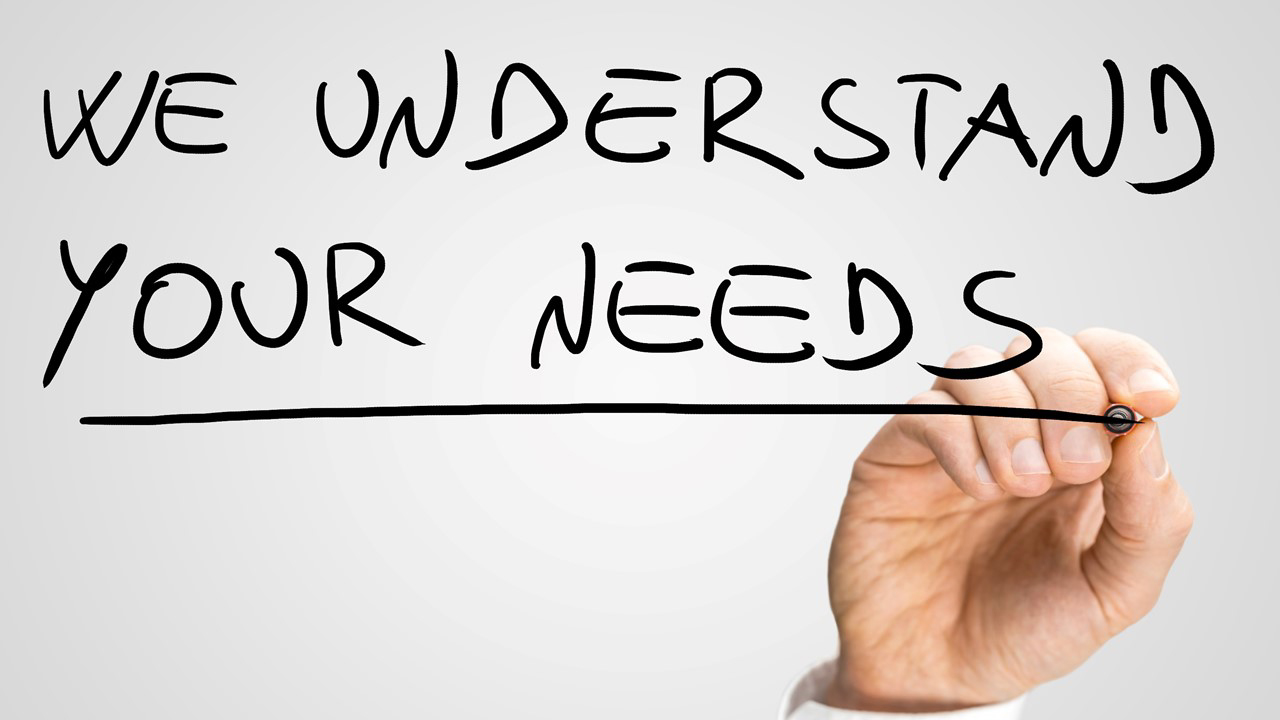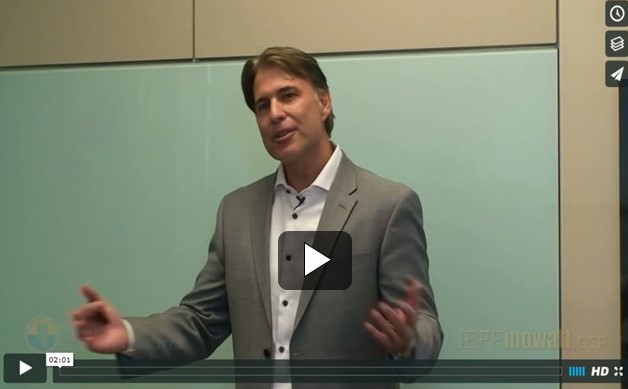Anticipate and satisfy the NEXT need
 They used to say in Victorian England that good butlers do not respond to requests. Instead, they anticipate their employers’ needs and fulfill them so employers don’t need to ask. Today, the principle of anticipating needs – while the rest of the planet becomes increasingly focused on filling orders – is more important than ever in differentiating your service. An electrician for example, while looking at the wiring plan for a home renovation, suggests also installing lights in high use closets that activate when the closet door opens and closes. A hair stylist suggests a style that the client can easily recreate at home. An executive assistant briefs his supervisor on background info about the client for the supervisor’s upcoming meeting. In short, to be seen as a Trusted Advisor, you need to continually demonstrate that you’re focused on your customers’ and coworkers’ strategic needs; not just their immediate requests.
They used to say in Victorian England that good butlers do not respond to requests. Instead, they anticipate their employers’ needs and fulfill them so employers don’t need to ask. Today, the principle of anticipating needs – while the rest of the planet becomes increasingly focused on filling orders – is more important than ever in differentiating your service. An electrician for example, while looking at the wiring plan for a home renovation, suggests also installing lights in high use closets that activate when the closet door opens and closes. A hair stylist suggests a style that the client can easily recreate at home. An executive assistant briefs his supervisor on background info about the client for the supervisor’s upcoming meeting. In short, to be seen as a Trusted Advisor, you need to continually demonstrate that you’re focused on your customers’ and coworkers’ strategic needs; not just their immediate requests.
Listening as a trusted advisor vs friend
Listening as a trusted advisor vs friend
Getting your Staff to Get Along
3 common teambuilding approaches - and why they don't work
“I can accept it when one of my employees makes a mistake. What I don’t have patience for is when my employees don’t play well with one another.” This was a client, a business owner with 45 employees, who explained, “When there’s a problem with a customer, employees focus more on blaming other departments and covering their own backsides than stepping-up to help each other to resolve the problem. We need a stronger commitment to teamwork.”
Over the many years that I’ve helped teams to strengthen trust with their customers and co-workers, I’ve discovered that typical approaches to enhancing teamwork not only don’t work - they’re actually counterproductive. Here are three common approaches to strengthening teamwork, and why you should take a different approach to building stronger bonds within your team.
1. Forced socializing
Employers often assume that staff will build stronger bonds by getting to know each other better socially. So once or twice a year they host a company picnic or seasonal dinner. These events may be great for social butterflies, but they’re agony for introverts. Ironically, we might assume that people who appear to be socially at ease must be extroverts. Surprisingly, if you were to ask these same people how they would describe themselves, significant numbers would say they are introverts. Maybe you’re one of them. If so, you’ve probably learned how to appear socially comfortable at large gatherings although in reality you find them awkward. At a forced social event like a company-wide dinner, people tend to sit with workplace friends (so they don’t have to work so hard at small talk). Meanwhile, shy ones will be wondering how soon they can leave without being rude.
Unless you enforce a seating plan at the company Christmas party (which everyone would resent) cliques will be reinforced. Some people will feel excluded since they’re not at the cool table. If there’s alcohol, some may overindulge to reduce their anxiety; leading to other problems. Typically, these events aren’t cheap. If your real goal is to reward employees (as opposed to building teamwork), ask everyone if they’d prefer to either a) have a pizza lunch brought in several times a year (with no alcohol) or b) have one fancy sit-down dinner in December. I guarantee pizza will win. Managers are wise to think of company supplied meals as the perks they are – but not as team builders.
2. Obstacle courses
A more novel approach to enhancing teamwork is to take the staff off-site for a “team building event”, such as an obstacle course, paint-ball battleground, or fire-walk. The theory is that since people will be making group-decisions under pressure, there will be lessons in group dynamics and overcoming obstacles. The reality is for some people these lessons are more than offset by the shame and resentment they feel because they lack physical prowess, or because they appear to be overly timid. Unless your business actually requires your staff to walk on hot coals at their jobs, the whole exercise will have no bearing on whether the sales department blames the service department when customers have a complaint. I suggest you skip these types of activities; not only saving money, but also the risk and liability of staff being injured.
3. Sensitivity Training
There are a plethora of courses to train employees on how to be more inclusive and more aware of how their words and actions may inadvertently offend others. These are indeed worthwhile; particularly where you’ve had incidents of workplace bullying or harassment. What these courses won’t do however, is get to the core of why certain employees don’t understand that their coworkers are in fact their (internal) customers; and treat them as such.
The solution - focus on the real goal
On a men’s pro hockey team, imagine the potential that exists among teammates for rivalries and conflicts. These gifted athletes have learned from boyhood that they are (physically at least) superior. They are wealthy, admired, and naturally want to be the team’s shining star. When they play on opposite teams, a single offhand remark can literally lead to fisticuffs. Yet when they play on the same team, these individuals set their differences (and their potentially massive egos) aside, because they all share a common purpose – to win games.
Similarly in your workplace, when employees are so focused on achieving their goal – delighting internal and external customers - they no longer have time to be distracted by minor interpersonal issues. As they say in Texas, a dog on the hunt doesn’t know it has fleas.
Trying to enhance teamwork is like trying to fall asleep. You can’t (and shouldn’t) force it. Teamwork is not a goal – it is a bi-product of your organization creating a culture that is obsessed with delighting customers. You end up with devoted customers and reduced conflicts. That means increased financial security and ultimately, better returns for everyone including employees. The bonus of cultivating a customer-focused culture is employees won’t have the time or attention to bother with the proverbial fleas of interpersonal pettiness. The bottom line is this - managers achieve a more motivated and cooperative workforce when they focus less on teamwork itself, and more on delighting customers and coworkers.
Two phrases to enhance trust
 Some people assume the best way to impress others is to say the right things. Ironically, people are more drawn to you when you’re seen less as a smooth talker, and more as a strong listener. In this video on humility and listening skills, you’ll discover two phrases that help prove to others that you are indeed worthy of their trust.
Some people assume the best way to impress others is to say the right things. Ironically, people are more drawn to you when you’re seen less as a smooth talker, and more as a strong listener. In this video on humility and listening skills, you’ll discover two phrases that help prove to others that you are indeed worthy of their trust.
Three words to calm customers and boost your business
Here’s a simple way to create a more positive impression the next time a customer or co-worker requests something, Don’t respond with the typical: Ok, I’ll handle it, I’ll deal with it, etc. Instead, tell the person you’ll take care of it. Consider the difference… while each phrase indicates you’ll comply, with the preferred wording you also convey that you’ll do so with caring. Telling someone you’ll deal with an issue makes it sound like an ordeal. Saying instead you’ll take care of something implies you’re a guardian who will guide the request to completion. You can use this same phrase to offer additional services: “Would it be helpful if we also took care of this other issue for you?” Those three words – take care of - make it easier for customers to feel good about doing more business with you.
They’re Everyone’s Customer
 A client of mine, a senior manager of a mid-sized company, explained to me, “Many employees are fixated on their own jobs and not focused enough on the customer.” As an example he shared, “A customer may walk from the equipment yard to the showroom, to the repair shop; passing within eyeshot of a dozen employees. If they aren’t directly in sales for that specific area, they seem to believe it’s not their job to talk to that customer or offer to help.” Later, in my seminar for all staff, we talked about when customers defect because they feel ignored, how it impacts everyone’s job security. The lesson is there’s no room for anyone adopting the attitude of, “It’s not my customer.” Or, “It’s not my problem if another department drops the ball.” Instead, people who phone-in or visit are everyone’s customer.
A client of mine, a senior manager of a mid-sized company, explained to me, “Many employees are fixated on their own jobs and not focused enough on the customer.” As an example he shared, “A customer may walk from the equipment yard to the showroom, to the repair shop; passing within eyeshot of a dozen employees. If they aren’t directly in sales for that specific area, they seem to believe it’s not their job to talk to that customer or offer to help.” Later, in my seminar for all staff, we talked about when customers defect because they feel ignored, how it impacts everyone’s job security. The lesson is there’s no room for anyone adopting the attitude of, “It’s not my customer.” Or, “It’s not my problem if another department drops the ball.” Instead, people who phone-in or visit are everyone’s customer.
How to compete with a Screen
 At a recent speaking engagement in Toronto I witnessed something disturbing at Pearson International Airport that has implications for everyone who interacts with customers. In several waiting areas and restaurants, there are now touchpads offering internet access and video games STATIONED IN FRONT OF EVERY SEAT. That means if you want to chat with a travelling companion or family member you have to compete for their attention with a screen stationed at their fingertips. I saw an excited toddler taking uneasy steps next to her mom who was too focused on the screen to take notice. While I appreciate the marvels of technology (which I’m using to send you this tip) there are unintended consequences.
At a recent speaking engagement in Toronto I witnessed something disturbing at Pearson International Airport that has implications for everyone who interacts with customers. In several waiting areas and restaurants, there are now touchpads offering internet access and video games STATIONED IN FRONT OF EVERY SEAT. That means if you want to chat with a travelling companion or family member you have to compete for their attention with a screen stationed at their fingertips. I saw an excited toddler taking uneasy steps next to her mom who was too focused on the screen to take notice. While I appreciate the marvels of technology (which I’m using to send you this tip) there are unintended consequences.
Aside from the assault on our humanity as fallout from our inexorable compulsion to look at shiny bright screens, pay attention to these two trends in your business: 1. Customer attention spans are shortening. 2. Our verbal communication skills are atrophying. That means when talking with customers, your messaging needs to be compelling and efficient. Chances are, unless you equip your team members with training on how to do just that, their ability to engage with customers – and build loyalty – will wane.
It’s NOT about what the customer asks for
 When you think about it, the only way a customer or coworker is going to think of you as a Trusted Advisor, is if they believe that you understand not only their immediate need, but that you also get what they’re ultimately looking to achieve. People who just focus on the customer’s request become transaction oriented. That’s a problem because there’s low perceived value in processing transactions.
When you think about it, the only way a customer or coworker is going to think of you as a Trusted Advisor, is if they believe that you understand not only their immediate need, but that you also get what they’re ultimately looking to achieve. People who just focus on the customer’s request become transaction oriented. That’s a problem because there’s low perceived value in processing transactions.
On the other hand, when you talk with people about what they are ultimately hoping to achieve, you demonstrate that you’re thinking not just tactically; but strategically. Clarifying strategic intent proves that you are thinking at a higher level than sometimes your customers themselves. That goes a long way towards you being valued as a trusted advisor. For examples of how you can apply this, check out my new on-line course, the Trusted Advisor Transformation. Courtesy reminder - introductory pricing of this course expires Dec 3rd.



